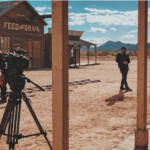
Contents
Introduction
What exactly is a TV producer, and how to become a producer for TV? You’ve often seen them in the credits of your favorite TV show, but you don’t really know what they do. Basically, a producer can be classified into different categories, such as an executive producer and a line producer.
For instance, a line producer is tasked to keep track of the schedule of the staff and workers of production while the executive producer is kind of like the director of the TV show (but not technically), where they plan the casting, budget and how everything goes in the show.
Are you interested in this career path? This article will show you important things to know about becoming a producer for TV:
What Qualifications Do You Need To Be A TV Producer?
To qualify as a TV producer, you need the following:
Educational Attainment
For educational attainment, you need at least a Bachelor’s Degree in film and TV production, mass communication, directing and the like. You need to have finished a course that is related to mass media and communication at the very least. There are plenty of schools out there that give you a chance to study TV production. In addition, you can also go for an HND (Higher National Diploma) when applicable to increase your chances of getting employed, especially in bigger companies.
Important Skills
The following skills are important for someone who wants to be a TV producer:
| Creativity |
|
||
| Leadership |
|
||
|
|
||
|
|
||
|
|
||
|
|
||
|
|
Relevant Experience
As a relevant experience, you need to have gone through some small-scale job in the movie or TV industry, such as being a production assistant for different films, studios and the like. This can give you more insight into how the whole production of a TV show works.
How Hard Is It To Become A TV Producer?
It can be quite stressful because being a TV producer means you need to be creative in the quickest amount of time. You need to have frequent meetings and conferences, hold castings, manage scripts, negotiate with sponsors and TV broadcasters, manage the budget and most importantly, take care of the production staff.
You may also find yourself traveling often to look for appropriate locations for shooting, and you may also have to work with less sleep because of meeting certain deadlines and schedules.
What are the Duties and Responsibilities of a TV Producer?
A TV producer’s duties and responsibilities mainly include:
- Constant research for new program segments
- Organizing location shoots
- Recruitment and casting
- Management of sponsors, health and safety, copyright laws and TV broadcasters
- Story conferences/meetings with staff and cast
- Management of scripts
- Assessing the overall budget
What are the Working Conditions of a TV Producer?
The working conditions can vary – you can be either in the office or in a tough location, especially if your shooting location is far away from the city. For instance, TV shows that document wildlife requires you to shoot in the wilderness so expect bad weather conditions, windy location sets, and other possible disturbances.
Like actors, actresses and production staff, you need to have a good immune system and a sharp mind in order to overcome physical, mental and emotional stress while managing a shoot for the TV show.
How To Become A TV Producer
Here are the steps in order for you to become a TV producer:
- Get a Bachelor’s Degree related to film, mass communication, media, TV production and the like. You can also go for an HNA or anything related. Some schools also offer vocational courses that are related to mass communication, so if you are still a senior high school graduate, that works, too.
- Obtain experience as a production assistant to observe the workflow of the TV production and media industry. Whether or not you’ve graduated with a Bachelor’s Degree or vocational course, starting small is important so that you know how things work. This allows you to have better judgment when you become a TV producer.
- Keep working in the industry and build connections in order to get a higher position. Don’t give up – keep networking with different companies and production staff and who knows, they might just offer you a good deal!
Conclusion
To wrap it up, being a producer for TV can be tough work, as it is quite a high position and a pretty daunting job to take. However, if you think you’ve got what it takes to work in the TV show of your dreams and you have the creativity to keep the audiences entertained and hooked, and if you also have good teamwork and leadership skills to manage the entire production staff and specifics, then you might be a step closer to this dream career!





